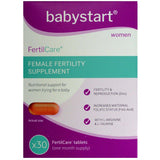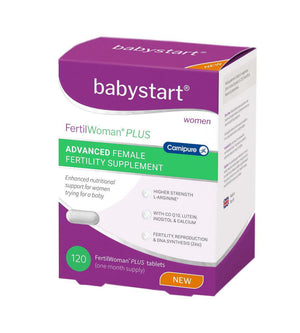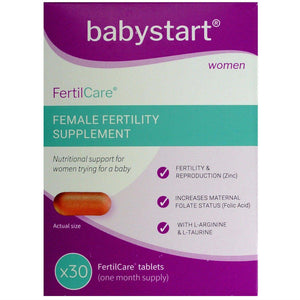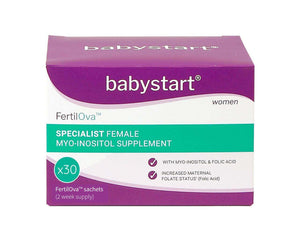When should I take an AMH (Anti Mullerian Hormone) blood test?
.png?v=1675860618935)

Related products
Overview
The anti-Mullerian (AMH) hormone is a biomarker of fertility and sex differentiation as it is synthesised and secreted by the female and male reproductive systems, which are ovaries and testicles. An Anti Mullerian Hormone blood test is performed to check Anti Mullerian Hormone levels in the blood to predict the start and reason for early menopause, Polycystic Ovarian Syndrome (PCOS), reasons for the decrease of menstruation, ovarian cancer and sex determination of a foetus. AMH is also known as the “fertility hormone” because it determines "functional ovarian reserves," which evaluate the chances of natural pregnancy.
The function and amount of AMH highly depend upon sex and age as its amount decreases with age after 30 years. Different factors affect the serum AMH level. A good level of AMH is achieved at puberty to 30 years old and then naturally declines. An AMH test can be done at any point during the menstrual cycle. Still, it is preferred in specific conditions, and it helps in assisting the reproduction process like in vitro fertilisation (IVF).
Read more: What is AMH?
Best time for an AMH Test:
Blood samples for the AMH test should be taken on days 2-4 of the menstrual cycle. The most preferred volume of blood sample is 2.0ml. Anti-Mullerian hormone levels fluctuate very little during the menstrual cycle, so the test can be done at any time during the normal menstrual cycle as its level is stable throughout the cycle.
It can be done at any time during pregnancy. However, it could be offered to all females at 26 years of age or older for assessing future fertility and ovarian reserve screening by AMH level may be considered beyond 30 years. The ability of AMH levels to predict the time of menopause is promising, but routine testing is not recommended.
What is Anti Mullerian Hormone?
Anti Mullerian Hormone is a glycoprotein hormone and a peptide growth factor called Mullerian-inhibiting hormone (MIH). In humans it is used for growth, sex differentiation and folliculogenesis (follicles formation). It inhibits the Mullerian duct (which develops the female reproductive system in the foetus) in the male embryo for sex differentiation. Its level is high when the foetus is male because it is produced from the testicle's somatic cells (Sertoli cells) to inhibit the Mullerian ducts and low in the case of a female foetus. It is produced by ovarian granulosa cells of follicles in females and the Sertoli cells of a male foetus.
What is the role of AMH?
AMH plays a crucial role in developing foetus sex organs in the womb at a higher level in the male foetus than the female foetus. The primary role of AMH in the ovary is to inhibit the recruitment of primordial follicles and FSH (follicular stimulating hormone) sensitivity of late antral follicles. During embryogenesis (embryo development), it prevents the growth of the uterus (by regressing Mullerian ducts) during 1st eight weeks of gestation in the male foetus. It also regulates the production of other sex hormones and the onset of puberty in both sexes by changing AMH levels (increase in females and decrease in males at puberty). It involves the recruitment stage of folliculogenesis in the pre-antral and small antral follicles by FSH.
What Is The Anti-Mullerian Hormone Test?
Anti Mullerian Hormone Test measures the level of anti-Mullerian hormone in the blood. It is mainly used by women to evaluate their reproductive health. It is a marker of ovarian reserves and ovarian efficiency. It determines the" number of eggs" found on the ovary (follicles). It checks a woman's ability to produce eggs for fertility (pregnancy). It also predicts the start of menopause when the ovary reserves at a decline stage. It helps diagnose polycystic ovary syndrome (POCS), a hormonal disorder that causes infertility. It monitors certain types of ovarian masses, such as granulosa cell tumours.
Why do women need an AMH test?
Low ovarian reserves are a serious condition in females because it leads to the sterility of females in their mid-thirties. Women having difficulty getting pregnant need an AMH test because it shows the chances of conceiving a baby. So it predicts the reason for infertility and responds well to treatment.
This test is also used for the diagnosis of ovarian cancer and PCOS. Women under the age of 38 years considering delaying pregnancy and women having a family history of ovarian cancer, ovarian failure and autoimmune diseases need to do an AMH test. AMH levels for all ages are the best markers for screening the quantity of a female functional ovarian reserve and predicting the time of menopause because it helps make decisions about future fertility and family size. Late and early menopause also causes problems such as cardiovascular disorders, osteoporosis, and breast and endometrial cancers.
Read more: Why should I test my AMH?
What is the normal AMH level?
Normal AMH blood level is 1.0-3.0 ng/ml, and it naturally declines with age.
Its higher level is not a good thing as a high AMH blood level over 3.0 ng/ml can indicate PCOS. Low AMH blood levels can indicate primary ovarian insufficiency (POI). After 30 years of age, AMH levels decline by about 2.5-0.5 ng/ml due to lower ovarian reserves. If a female having serum AMH level less than 0.1ng/ml in any reproductive age is strongly associated with the onset of menopause.
Read more: What is a good AMH level?
Conclusion:
AMH levels vary by age in females, and the best time to check its level is 26 to 30 years of age because, at that time, maximum fertility can be assessed, and the conception rate is high. Some environmental and genetic factors alter the AMH level in blood. Increased luteinising hormone (LH) in stress conditions causes insulin resistance. It can be associated with a higher level of AMH (PCOS chances increase).
Planned chemotherapy, mostly in breast cancer patients, predict the risks of a decrease in ovarian reserves leading to female infertility due to a reduction in AMH as well as follicle-stimulating hormone (FSH) level. AMH levels in females decrease in winter compared to the summer season because its story is affected by a deficiency of vitamin D. So these factors can influence the AMH levels at any age. Otherwise, the AMH test can detect a normal quantity in blood.
If you are looking to check your AMH levels, order a Welzo AMH at-home Blood Test.
































 Rated Excellent by 26,523+ Reviews
Rated Excellent by 26,523+ Reviews